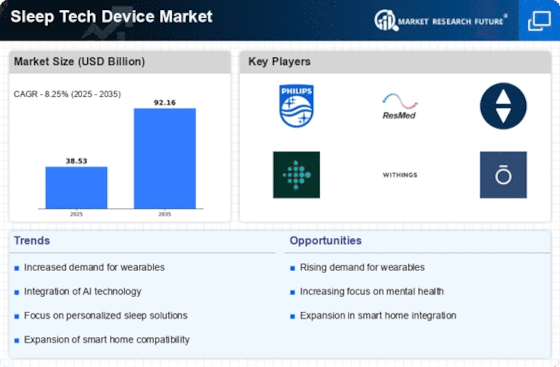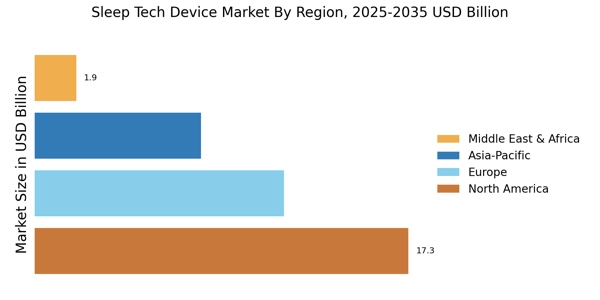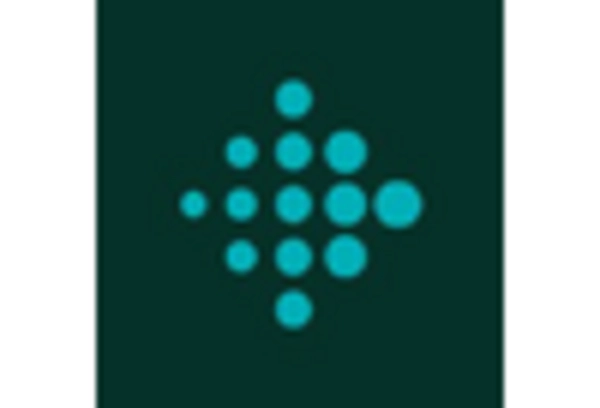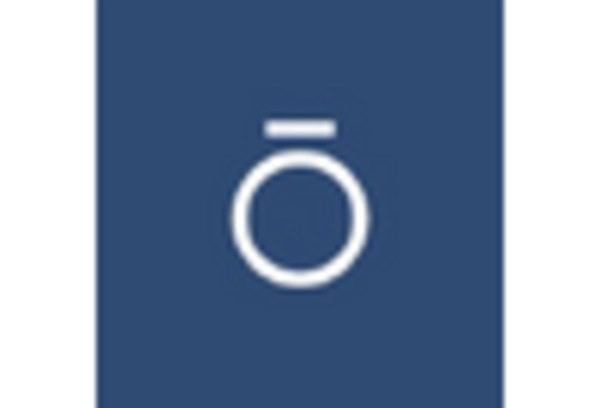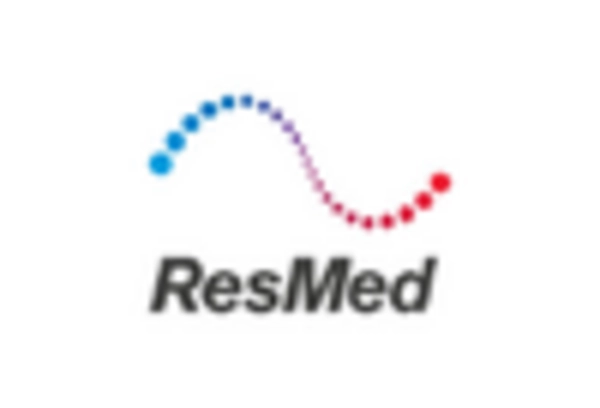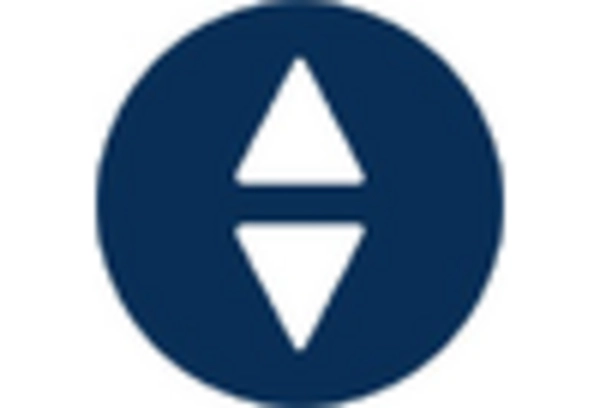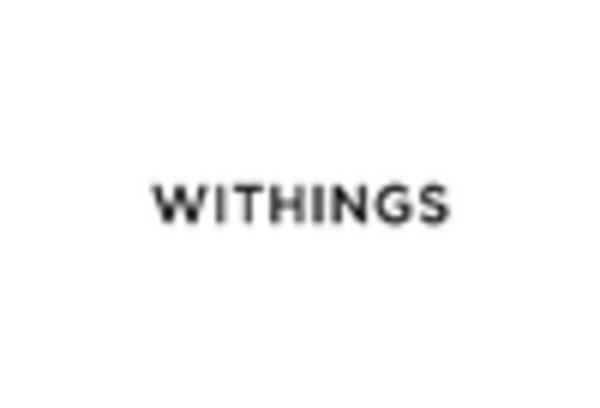Increasing Awareness of Sleep Disorders
The rising awareness of sleep disorders is a pivotal driver for the Sleep Tech Device Market. As more individuals recognize the impact of sleep quality on overall health, there is a growing demand for devices that can monitor and improve sleep patterns. According to recent data, approximately 70 million people suffer from sleep disorders in the United States alone, which underscores the potential market size. This awareness is not limited to the United States; it extends to various regions, prompting healthcare providers to recommend sleep tech devices as part of treatment plans. Consequently, the Sleep Tech Device Market is likely to experience substantial growth as consumers seek solutions to enhance their sleep quality and address underlying health issues.
Rising E-commerce and Online Retail Channels
The rise of e-commerce and online retail channels is transforming the Sleep Tech Device Market. With the increasing prevalence of online shopping, consumers now have easier access to a wide range of sleep tech devices. This shift has been accelerated by the convenience and variety offered by online platforms, allowing consumers to compare products and read reviews before making a purchase. Market data suggests that e-commerce sales in the health and wellness sector are expected to grow substantially, with online channels accounting for a significant portion of total sales. As more consumers turn to online shopping for their sleep tech needs, the industry is likely to see enhanced growth opportunities, driven by the accessibility and convenience of purchasing these devices.
Integration of Sleep Tech with Fitness Devices
The integration of sleep tech with fitness devices is emerging as a key driver for the Sleep Tech Device Market. As consumers increasingly adopt fitness trackers and smartwatches, there is a natural progression towards incorporating sleep monitoring features into these devices. This convergence allows users to gain a comprehensive understanding of their health, as sleep quality is intrinsically linked to physical performance and recovery. The market for fitness wearables is projected to grow significantly, and the inclusion of sleep tracking capabilities is likely to enhance the appeal of these products. Consequently, the Sleep Tech Device Market stands to benefit from this trend, as consumers seek multifunctional devices that cater to their diverse health needs.
Technological Advancements in Sleep Monitoring
Technological advancements play a crucial role in shaping the Sleep Tech Device Market. Innovations in sensor technology, artificial intelligence, and data analytics have led to the development of sophisticated sleep monitoring devices. These devices can now provide real-time feedback on sleep quality, duration, and disturbances, which was not possible in earlier models. For instance, the integration of machine learning algorithms allows for personalized sleep recommendations based on individual patterns. As these technologies continue to evolve, they are expected to attract a broader consumer base, including those who may not have previously considered sleep tech devices. The market is projected to grow significantly, with estimates suggesting a compound annual growth rate of over 20% in the coming years.
Growing Demand for Health and Wellness Products
The increasing consumer focus on health and wellness is a significant driver for the Sleep Tech Device Market. As individuals become more health-conscious, they are actively seeking products that promote better sleep as part of a holistic approach to well-being. This trend is reflected in the rising sales of sleep tech devices, which are often marketed as essential tools for achieving optimal health. Market data indicates that the wellness industry is expected to reach a valuation of over 4 trillion dollars, with sleep tech devices representing a growing segment. This demand is further fueled by the proliferation of information regarding the benefits of quality sleep, leading consumers to invest in technology that supports their health goals.


